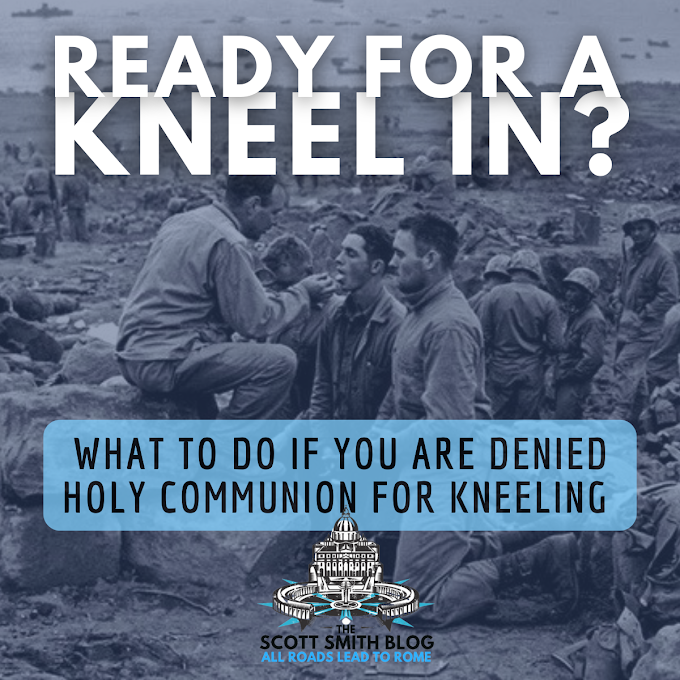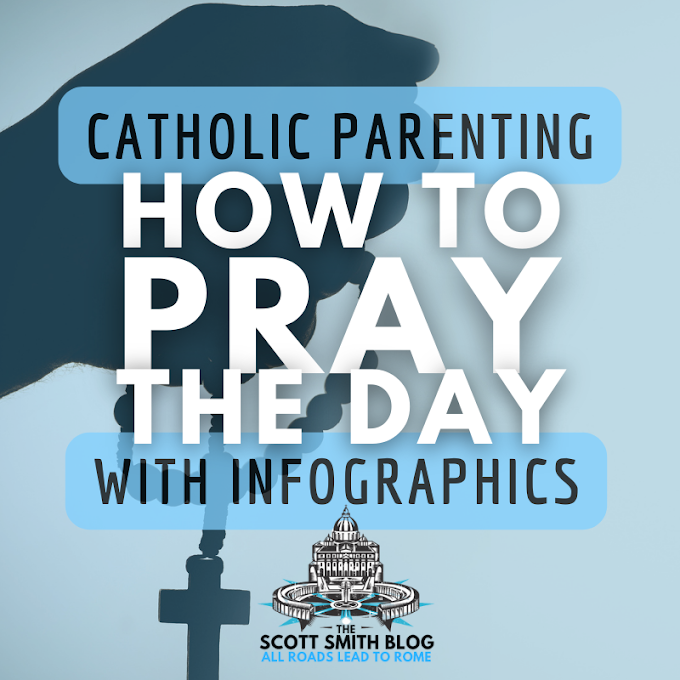Imagine Abraham and Isaac. Imagine the man that God called to sacrifice his son. What does this man and his son look like? What if I told you that our mental image of Abraham and Isaac is seriously flawed?
What about Isaac? How old is he? He's just a young boy, right? What if I told you that Isaac was not a little boy?
Not only that, did you know that some people accuse the Bible of endorsing child sacrifice? This is all based on fundamental misconceptions about Isaac, which we will unravel together below.
[This is part one of a series of articles on Abraham & Isaac and how they prefigure Jesus]
We will go over the following topics in this article: (1) the age of Isaac; (2) Isaac was not a child sacrifice; and (3) Isaac was a willing sacrifice.
The Age of Isaac
One of the first questions I asked was this: How old is Isaac? Picture him. From our years in Sunday School and Children's Church, we are taught that Isaac is a child, are we not?
Isaac is NOT a young boy.
This has become such a pervasive misconception that critics actually attack the Bible for endorsing child sacrifice. Crazy, right? But it's out there. Here's an article from The Huffington Post (go figure). Here's yet another article from The Huffington Post. Here's a post from Patheos.
Christians need to be ready to make a defense of our faith in this regard. Why? Because an attack on the Sacrifice of Isaac is an attack on the Sacrifice of the Cross.
Also, the first words of Genesis 22 are "After these things God tested Abraham" - what were "these things" that just happened? Genesis 21 depicts the birth of Isaac. If the sacrifice is just after that, Isaac is still an infant or even a baby, right? No.
"And Abraham took the wood of the burnt offering, and laid it on Isaac his son" (Gen 22:6).
As we will see later, it is very significant that Isaac should carry the wood of the sacrifice on his back, as Christ did, carrying the Cross. For now, it is significant in showing Isaac's age.
How much wood would it take to roast a human being? At least several logs, right? Possibly a lot more ... maybe this much?
Based on this, we know that Isaac is old enough to carry a bundle of wood up a mountain. He is certainly old enough to walk. He's old enough, not only to climb a mountain, but to do so while hauling some serious weight.
This likely also tells us that Isaac is stronger than Abraham, who is over one hundred years old at this point - we'll come back to this in the "Willing Sacrifice" section.
"Abraham said to his young men, 'Stay here with the ass, I and the lad will go yonder and worship, and come again to you'" (Gen 22:5).
What if I told you the same word is used for both "lad" and "young men"???
The same Hebrew word -- na'ar -- is used to describe both Isaac and the servants. It is likely, therefore, that Isaac was around the same age as Abraham's servants, who accompanied them.
According to Strong's Hebrew, na'ar could mean any of the following: a boy, lad, youth, or a retainer. In the medieval period, a "retainer" was typically a solider in the service of a lord. A "retainer sacrifice" involved the killing of a servant in order for them to continue to serve their master in the next life.
Isaac was a full-grown man and could have even been the same age as Jesus was when he sacrificed himself on the Cross.
Some last clues that point to this: (1) Abraham sent for a wife for Isaac at this time; (2) the Jewish historian Josephus claimed Isaac was 25 at the sacrifice; and (3) multiple rabbinic sources claim he was 36 or 33.
For my part, I think Isaac and Jesus sacrificed themselves at the same age. There are so many connections between Isaac and Jesus in Genesis 22, as I will be discussing in the next articles. Why not this connection, as well? As the Venerable Fulton Sheen said, God's plan does not come about "without a finesse of all details."
No. We see this misconception fall apart for two primary reasons:
First, Isaac was NOT a child. No child, no child sacrifice. It's that simple.
Okay, but it was an attempted human sacrifice then, right? Not exactly ...
Second, Isaac was not being sacrificed against his will, as will be described in the next section.
The sacrifice of Isaac was a human sacrifice in the same sense that Jesus' death on the Cross was a human sacrifice. That is, both willingly gave up their lives. Jesus could have called down legions of angels to stop his crucifixion at any moment. Similarly, as we will see below, Isaac could have resisted his father's will at any point.
Isaac is NOT a young boy.
This has become such a pervasive misconception that critics actually attack the Bible for endorsing child sacrifice. Crazy, right? But it's out there. Here's an article from The Huffington Post (go figure). Here's yet another article from The Huffington Post. Here's a post from Patheos.
Christians need to be ready to make a defense of our faith in this regard. Why? Because an attack on the Sacrifice of Isaac is an attack on the Sacrifice of the Cross.
So, Why do we think Isaac is a young boy?
First off, in Genesis 22 (above), Isaac is referred to again and again as Abraham's "son" and even "lad."Also, the first words of Genesis 22 are "After these things God tested Abraham" - what were "these things" that just happened? Genesis 21 depicts the birth of Isaac. If the sacrifice is just after that, Isaac is still an infant or even a baby, right? No.
Textual Clues to Isaac's Age
There are several context clues that give us insight into Isaac's age.First, Isaac carries the wood of the sacrifice:
"And Abraham took the wood of the burnt offering, and laid it on Isaac his son" (Gen 22:6).
As we will see later, it is very significant that Isaac should carry the wood of the sacrifice on his back, as Christ did, carrying the Cross. For now, it is significant in showing Isaac's age.
How much wood would it take to roast a human being? At least several logs, right? Possibly a lot more ... maybe this much?
This likely also tells us that Isaac is stronger than Abraham, who is over one hundred years old at this point - we'll come back to this in the "Willing Sacrifice" section.
2. The words "lad" and "young men":
"Abraham said to his young men, 'Stay here with the ass, I and the lad will go yonder and worship, and come again to you'" (Gen 22:5).
What if I told you the same word is used for both "lad" and "young men"???
The same Hebrew word -- na'ar -- is used to describe both Isaac and the servants. It is likely, therefore, that Isaac was around the same age as Abraham's servants, who accompanied them.
According to Strong's Hebrew, na'ar could mean any of the following: a boy, lad, youth, or a retainer. In the medieval period, a "retainer" was typically a solider in the service of a lord. A "retainer sacrifice" involved the killing of a servant in order for them to continue to serve their master in the next life.
3. Abraham is 100 years old when Isaac is born (Gen 21:1-5)
The next time we are told Abraham's age is at Genesis 23:1, when Sarah dies at 127 years old. We know Abraham is 10 years her senior (cf. Gen 17:17), so Abraham is now 137. Isaac, therefore, is at most 37 years old.Conclusion: Isaac was an Adult
Elsewhere in Genesis, we see the term naar describe Benjamin when he is at least 22 years old (cf. Gen 39:17-22) and Joseph when he stood before Pharaoh around the age of 30 (cf. Gen 41).Isaac was a full-grown man and could have even been the same age as Jesus was when he sacrificed himself on the Cross.
Some last clues that point to this: (1) Abraham sent for a wife for Isaac at this time; (2) the Jewish historian Josephus claimed Isaac was 25 at the sacrifice; and (3) multiple rabbinic sources claim he was 36 or 33.
For my part, I think Isaac and Jesus sacrificed themselves at the same age. There are so many connections between Isaac and Jesus in Genesis 22, as I will be discussing in the next articles. Why not this connection, as well? As the Venerable Fulton Sheen said, God's plan does not come about "without a finesse of all details."
 |
| Child sacrifice to Molech as described in Leviticus 18 |
Not a Child Sacrifice
So, was Isaac a "child sacrifice" as alleged by The Huffington Post and Patheos articles above?No. We see this misconception fall apart for two primary reasons:
First, Isaac was NOT a child. No child, no child sacrifice. It's that simple.
Okay, but it was an attempted human sacrifice then, right? Not exactly ...
Second, Isaac was not being sacrificed against his will, as will be described in the next section.
The sacrifice of Isaac was a human sacrifice in the same sense that Jesus' death on the Cross was a human sacrifice. That is, both willingly gave up their lives. Jesus could have called down legions of angels to stop his crucifixion at any moment. Similarly, as we will see below, Isaac could have resisted his father's will at any point.
 |
| Francisco de Zurbaran, "Agnus Dei" (1635-40), Prado, Madrid |
A Willing Sacrifice
Imagine this scene again. Father Abraham is taking his son Isaac to be sacrificed. How old is Abraham? How old is Isaac?
Abraham is somewhere between 100 years old (Gen 21:1-5) and 137 years old (cf. Gen 23:1; 17:17). A man his age should not be climbing a mountain!
Isaac is somewhere under 37 years old, as we discussed above. He has reached the age of manhood and will soon marry. Most likely, he is in his late 20s or early 30s, possibly even the age of Jesus, a beautiful connection in itself.
Isaac is in the prime of his life; Abraham is long past his prime.
Could Isaac overpower Abraham? Yes, easily. Isaac is not an infant or small child, as he is typically depicted.
This is not to say our older generation is weak and helpless:
But Abraham is approaching 137 years old and Isaac is in his prime. We are not told that Isaac struggled in the slightest. He was obedient to his father, Abraham, as Jesus will be to His Father.
This is not to say our older generation is weak and helpless:
But Abraham is approaching 137 years old and Isaac is in his prime. We are not told that Isaac struggled in the slightest. He was obedient to his father, Abraham, as Jesus will be to His Father.
How does Christ describe his own sacrifice? See John 10:17-18,
For this reason the Father loves me, because I lay down my life, that I may take it again. No one takes it from me, but I lay it down of my own accord. I have power to lay it down, and I have power to take it again; this charge I have received from my Father.
These could be the words of Isaac, speaking of his "Father" Abraham. Only Isaac did not have the "power to take [his life back] again."
This is part of a larger article, Abraham, Isaac, & Jesus: The Complete Typology:
Any questions you have about Isaac and Abraham? Please comment below and remember to share, as well!
God bless! Remember to stay tuned for the next articles on Abraham and Isaac. There's so much gold in these mountains.
This is part of a larger article, Abraham, Isaac, & Jesus: The Complete Typology:
Any questions you have about Isaac and Abraham? Please comment below and remember to share, as well!
God bless! Remember to stay tuned for the next articles on Abraham and Isaac. There's so much gold in these mountains.


















0 Comments